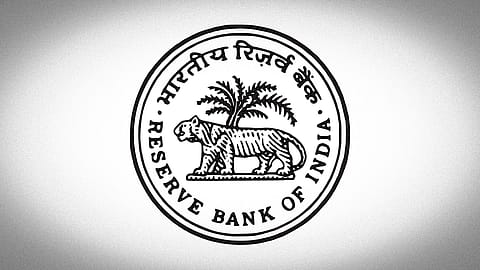RBI makes big bet on AI to fix banking complaints tsunami; warns banks to improve customer service
Despite advancements in digital banking, the rising volume of customer complaints remains a pressing concern.

The Reserve Bank of India (RBI) has announced its commitment to enhancing consumer grievance redressal systems, using artificial intelligence (AI) to drive efficiency and transparency in dispute resolution. Addressing the Annual Conference of the RBI Ombudsmen in Mumbai, Governor Sanjay Malhotra underscored the importance of customer service in the financial sector, focusing on the need for proactive grievance resolution mechanisms.
Need for stronger grievance redressal
Despite advancements in digital banking, the rising volume of customer complaints remains a pressing concern. In the financial year 2023-24 alone, 95 Scheduled Commercial Banks recorded over 10 million complaints, with many escalating to the RBI’s Integrated Ombudsman Scheme. The Governor stressed that each complaint is a test of trust and that unresolved grievances erode consumer confidence.
“Best service is not one in which there is no occasion for grievance redressal but one in which there is no occasion for the customer service department to step in. While improving systems to reduce grievances is important, setting up a robust grievance redressal system is equally important for all regulated entities,” Malhotra stated.
He emphasised that financial institutions are fundamentally in the business of customer service. However, he noted that top management across banks and NBFCs are not devoting enough time to customer service and grievance redressal, leading to a large volume of complaints. Many of these complaints remain unresolved, causing them to escalate to the RBI Ombudsmen.
"Let me give you some perspective. The number of complaints received under RBI's Integrated Ombudsman Scheme increased at a compounded average growth rate of almost 50% per year over the last two years to 9.34 lakh in 2023-24. The number of complaints processed at the Office of RBI Ombudsman increased by 25% from about 2.35 lakh in 2022-23 to almost 2.94 lakh in 2023-24. Not only are a large number of complaints getting escalated, but a large proportion of them — nearly 57% of the maintainable complaints last year — required mediation or formal intervention by the RBI Ombudsmen. You would all agree that this is a highly unsatisfactory situation and needs our urgent attention," said Malhotra.
He further urged top management across banks and NBFCs to dedicate more time to customer service and grievance redressal, stressing that a seamless consumer experience is fundamental to sustaining trust in financial institutions.
The AI advantage in grievance redressal
As financial services become increasingly digitised, AI is emerging as a transformative force in complaint resolution. Malhotra outlined key areas where AI can improve grievance redressal:
AI can classify complaints based on urgency and complexity, ensuring they reach the right teams with minimal delay.
AI can be used to pinpoint systemic gaps by analysing both structured and unstructured data such as emails, chat logs and call transcripts.
(INR CR)
AI can detect emerging patterns in complaints, enabling banks to preemptively address recurring issues such as ATM failures and transaction errors.
In a linguistically diverse country like India, AI-driven chatbots and voice recognition (interactive voice response (IVR)) tools can eliminate language barriers by operating in local languages.
Challenges and guardrails in AI deployment
While AI presents unparalleled opportunities, Malhotra cautioned against its risks. The primary concerns include data privacy, algorithmic bias and the complexity of AI-driven decision-making. To address these challenges, he proposed the following safeguards:
"Human oversight, bias mitigation and data privacy must be integrated into the AI systems to ensure transparent and consistent outcomes," said Malhotra.
Financial institutions must continuously audit AI models to ensure fair treatment across different customer demographics. Moreover, robust encryption and compliance with data protection regulations must be prioritised to safeguard consumer information.
Even as AI plays a pivotal role, Malhotra emphasised that customer service is ultimately a human-driven function. He urged financial institutions to invest in training staff on the behavioural aspects of customer service and to empower employees to make decisions that prioritise consumer interest.
"Every transaction represents not just a number in a ledger, but the hard-earned savings of a family, the dreams of a small entrepreneur or the lifelong savings of a senior citizen. It is, therefore, critical that RBI-regulated entities (REs) continue to invest in human resources dedicated to customer service and grievance redressal,” he asserted.
Approach towards consumer protection
The RBI is also taking steps to streamline regulatory approvals and facilitate better interactions with financial entities. Through initiatives like PRAVAAH, the central bank aims to enhance the efficiency of service delivery to regulated entities and consumers alike. This will help REs in expediting the disposal of applications received by the Reserve Bank.
Hence, with a blend of cutting-edge technology and a commitment to ethical governance, the financial sector is in a position to redefine customer service standards.
As India moves towards its vision of Viksit Bharat, prioritising consumer protection and grievance redressal will be key to maintaining financial stability. "With the financial sector touching the lives of almost the entire population, we have a critical role. To succeed in this role, we must continue to enhance customer service and customer protection," said Malhotra.